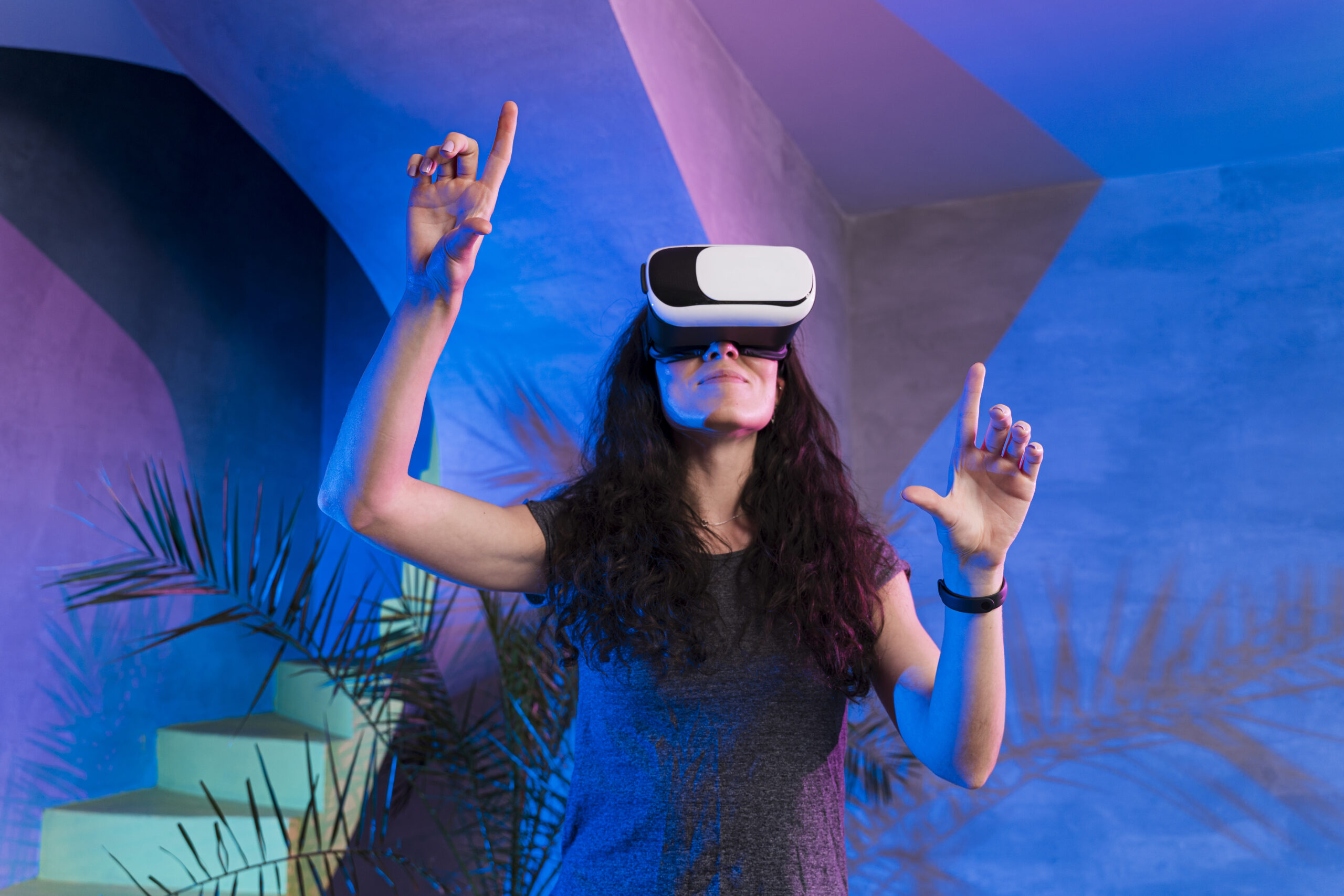The Future of Tech in Entertainment: A Deep Dive into Transformative Technologies
The entertainment industry stands at a pivotal moment in history, driven by rapid technological advancements that promise to redefine how we experience media, engage with content, and interact with the world around us. From immersive experiences to personalized content delivery and blockchainenabled security, the convergence of cuttingedge technologies is poised to revolutionize entertainment in unprecedented ways. This comprehensive exploration delves into the transformative impact of technology across various facets of the entertainment sector, offering insightful perspectives and forecasting future trends.
The entertainment landscape has undergone remarkable transformations over the decades, shaped by technological innovations that continue to push boundaries and redefine possibilities. As we look ahead, technologies such as Virtual Reality (VR), Augmented Reality (AR), Artificial Intelligence (AI), blockchain, and advanced streaming platforms are set to usher in a new era of immersive experiences, personalized content delivery, and enhanced security in intellectual property rights. This deep dive into the future of tech in entertainment explores how these innovations are reshaping storytelling, audience engagement, and business models across film, television, gaming, live events, and beyond.
Immersive Experiences: The Evolution of Virtual and Augmented Reality
Virtual Reality (VR) and Augmented Reality (AR) are revolutionizing the way audiences consume entertainment, offering immersive experiences that blur the lines between physical and digital realms. VR headsets transport users into fully realized virtual environments, allowing them to explore distant galaxies, interact with fictional characters, or experience historical events firsthand. AR overlays digital information onto the real world, enhancing live events, museum exhibits, and interactive installations with contextual information and interactive elements.
Applications of VR and AR in Entertainment:
- Film and Television: VR enables viewers to step inside the worlds of their favorite movies and TV shows, experiencing narratives from new perspectives.
- Gaming: VR and AR technologies enhance gameplay with immersive environments and interactive storytelling, blurring the lines between gaming and reality.
- Live Events: AR enhances live performances with digital overlays and interactive elements, creating dynamic and engaging experiences for audiences.
- Education and Training: VR simulations offer realistic training environments for industries such as healthcare, aviation, and military, improving learning outcomes and safety protocols.
- Future Trends: As VR and AR technologies continue to evolve, we can expect increased adoption in entertainment and beyond. Advances in hardware, such as lighter and more ergonomic headsets, coupled with enhanced content creation tools, will drive broader accessibility and adoption among consumers and businesses alike.
Personalized Content Delivery: The Era of AI and Machine Learning
Artificial Intelligence (AI) and Machine Learning (ML) are transforming how content is created, curated, and delivered to audiences. AI algorithms analyze vast datasets—including viewer preferences, browsing history, and demographic information—to personalize content recommendations and optimize user experiences across streaming platforms and digital services. From personalized movie recommendations to interactive storytelling experiences, AI is reshaping how audiences engage with entertainment content.
Applications of AI and ML in Entertainment:
- Content Recommendation: AIdriven algorithms predict user preferences and behaviors, curating personalized content suggestions and improving viewer engagement.
- Content Creation: AI tools assist filmmakers and content creators with script analysis, video editing, and visual effects, streamlining production processes and enhancing creativity.
- Interactive Experiences: AIpowered chatbots and virtual assistants interact with audiences in realtime during live events, enhancing engagement and interactivity.
- Future Trends: The integration of AI and ML in entertainment will continue to expand, enabling more sophisticated content personalization and audience segmentation. As AI technologies advance, we may see new forms of interactive storytelling and content creation that blur the line between creator and audience, fostering deeper engagement and immersion.
Blockchain and Digital Rights Management: Ensuring Transparency and Security
Blockchain technology is revolutionizing digital rights management (DRM) and content distribution in the entertainment industry, offering enhanced security, transparency, and efficiency in intellectual property rights management. By decentralizing transaction records and creating immutable ledgers, blockchain ensures the authenticity and traceability of digital assets, protecting content creators from piracy, unauthorized distribution, and intellectual property disputes. Smart contracts automate royalty payments and licensing agreements, ensuring fair compensation and transparency for creators and rights holders.
Applications of Blockchain in Entertainment:
- Digital Rights Management: Blockchain verifies ownership and authenticity of digital content, reducing piracy and unauthorized distribution.
- Micropayments and Royalties: Smart contracts automate royalty payments and licensing agreements, ensuring creators receive fair compensation for their work.
- Fan Engagement: Blockchain enables direct interactions between creators and fans through tokenized ecosystems, offering exclusive content, merchandise, and experiences.
- Future Trends: The adoption of blockchain in entertainment will continue to grow, driven by its potential to revolutionize content distribution, rights management, and monetization strategies. As blockchain ecosystems evolve, we may see new models of fan engagement and revenue generation that empower creators and enhance audience experiences.
Live Streaming and Virtual Events: Redefining Audience Engagement
Live streaming platforms have democratized access to live events, transforming how audiences engage with entertainment content in realtime. From concerts and sports events to gaming tournaments and virtual conferences, live streaming enables global audiences to participate in shared experiences from anywhere in the world. Social media integration allows fans to interact with performers, hosts, and fellow viewers, fostering community and engagement during live broadcasts.
Applications of Live Streaming in Entertainment:
- Concerts and Performances: Live streaming brings concerts and performances to global audiences, expanding artist reach and audience engagement.
- Gaming and Esports: Live streaming platforms broadcast gaming tournaments and esports events, attracting millions of viewers and driving industry growth.
- Virtual Conferences and Events: Live streaming enables organizations to host virtual conferences, seminars, and trade shows, reaching global audiences and enhancing accessibility.
- Future Trends: The rise of live streaming and virtual events will continue to shape entertainment consumption habits, with advancements in technology enhancing streaming quality, interactivity, and scalability. As 5G networks and edge computing capabilities expand, we may see new opportunities for realtime interactions and immersive experiences in live entertainment.
Artificial Intelligence in Content Creation: From Script to Screen
Artificial Intelligence (AI) is revolutionizing content creation processes across film, television, gaming, and digital media, offering new tools and capabilities for filmmakers, studios, and content creators. AI algorithms analyze audience preferences, market trends, and historical data to inform creative decisions, optimize production workflows, and enhance storytelling techniques. Automated tools for script analysis, video editing, and visual effects generation streamline production processes, reducing costs and improving efficiency.
Applications of AI in Content Creation:
- Script Analysis and Storytelling: AI analyzes scripts and story outlines, predicting audience reactions and optimizing narrative structures for maximum engagement.
- Visual Effects and Animation: AIpowered tools generate realistic visual effects and animations, enhancing cinematic quality and reducing production time.
- Localization and Dubbing: AIdriven voice and facial recognition technologies improve localization efforts, making content accessible to global audiences in their native languages.
- Future Trends: AI will continue to play a central role in content creation, enabling filmmakers and studios to innovate and experiment with new storytelling techniques and production methods. As AI technologies evolve, we may see advancements in realtime animation, virtual production, and interactive storytelling experiences that push the boundaries of traditional media formats.
The Rise of Esports and Gaming: Convergence of Entertainment and Competition
Esports has emerged as a global phenomenon, blending entertainment with competitive gaming on a massive scale. Technological advancements in gaming engines, virtual environments, and online streaming platforms have elevated esports tournaments to mainstream entertainment events, attracting millions of viewers and generating substantial revenue streams. VR and AR technologies enhance gaming experiences with immersive environments, interactive storytelling, and realtime gameplay interactions, blurring the lines between virtual worlds and reality.
Applications of Esports and Gaming Technology:
- Gaming Tournaments and Events: Esports tournaments attract global audiences, with viewership numbers rivaling traditional sports broadcasts.
- Virtual Reality Gaming: VR technologies offer immersive gaming experiences, transporting players into digital worlds and enhancing gameplay interactions.
- Streaming and Content Creation: Gaming influencers and content creators leverage streaming platforms to engage with audiences, build communities, and monetize their content.
- Future Trends: Esports and gaming will continue to drive innovation in entertainment, with advancements in technology enhancing competitive gameplay, viewer engagement, and spectator experiences. As gaming communities grow and evolve, we may see new opportunities for crossplatform integration, interactive storytelling, and virtual fan interactions that redefine the future of esports entertainment.
Conclusion: Embracing the Technological Frontier in Entertainment As we navigate the evolving landscape of entertainment, technology continues to redefine how we create, distribute, and experience media and content. From immersive experiences and personalized content delivery to blockchainenabled security and AIdriven innovation, the future of tech in entertainment promises limitless possibilities for creativity, engagement, and audience interaction. By embracing these transformative technologies, creators, distributors, and audiences alike can embark on a journey of exploration and innovation, shaping the future of entertainment in unprecedented ways. The convergence of technology and entertainment opens new horizons for storytelling, audience engagement, and business innovation, paving the way for a dynamic and inclusive entertainment ecosystem in the digital age.






